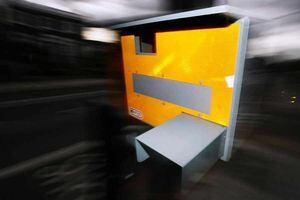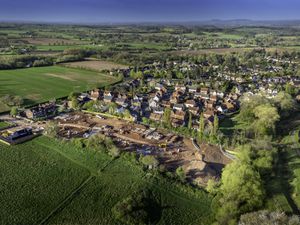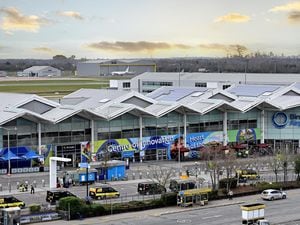Van cameras 'better' at targeting speeding
Mobile cameras in vans are better suited to target areas where residents are concerned about speeding, police chiefs have insisted, as it was revealed all fixed cameras will be turned off at the end of the month.

The fleet of cameras in the back of enforcement vans will be doubled from two to four after the last 73 of the region's 305 speed and traffic light cameras are switched off.
Bosses will look into whether they could be converted to digital and turned back on in the future. They say the move will save money as processing outdated wet film is too costly.
Councillors on the West Midlands Planning and Transportation Sub-Committee had been expected to agree a strategy for the future of speed cameras yesterday but the decision has been put back until May.
Several other areas across the country have already switched off their cameras including Avon and Somerset, Wiltshire and Swindon and Northamptonshire.
West Midlands Police assistant chief constable Garry Forsyth said: "The cameras in use require a major upgrade in order to remain effective and this would cost both police and local authorities a considerable amount of money at a time of a reduction across public sector budgets.
"However, we are committed to road safety and this is why we are due to increase the number of mobile speed cameras from two to four from April 2013.
"Mobile cameras are deployed from the back of an enforcement van, allowing them to be moved around the West Midlands as needed and are clearly marked to indicate that they are conducting speed enforcement.
"They are more flexible than fixed cameras, allowing us to conduct speed enforcement on roads where a fixed housing could not be installed and can be deployed to roads where the collision history would not warrant a fixed camera, but where there is concern from the community, local authority or local police."
The Royal Society for the Prevention of Accidents today said it hopes the upgrade is carried out soon. Kevin Clinton, head of road safety said: "Speed cameras are a very effective way of saving lives and reducing injuries on the road, they help save an estimated 100 lives a year in the UK. RoSPA is pleased that the plan is to replace ageing wet film cameras with more modern digital ones. We believe that cameras should continue to be used where casualty statistics show they are needed."
There are no plans to turn off the 263 speed cameras in Staffordshire.





